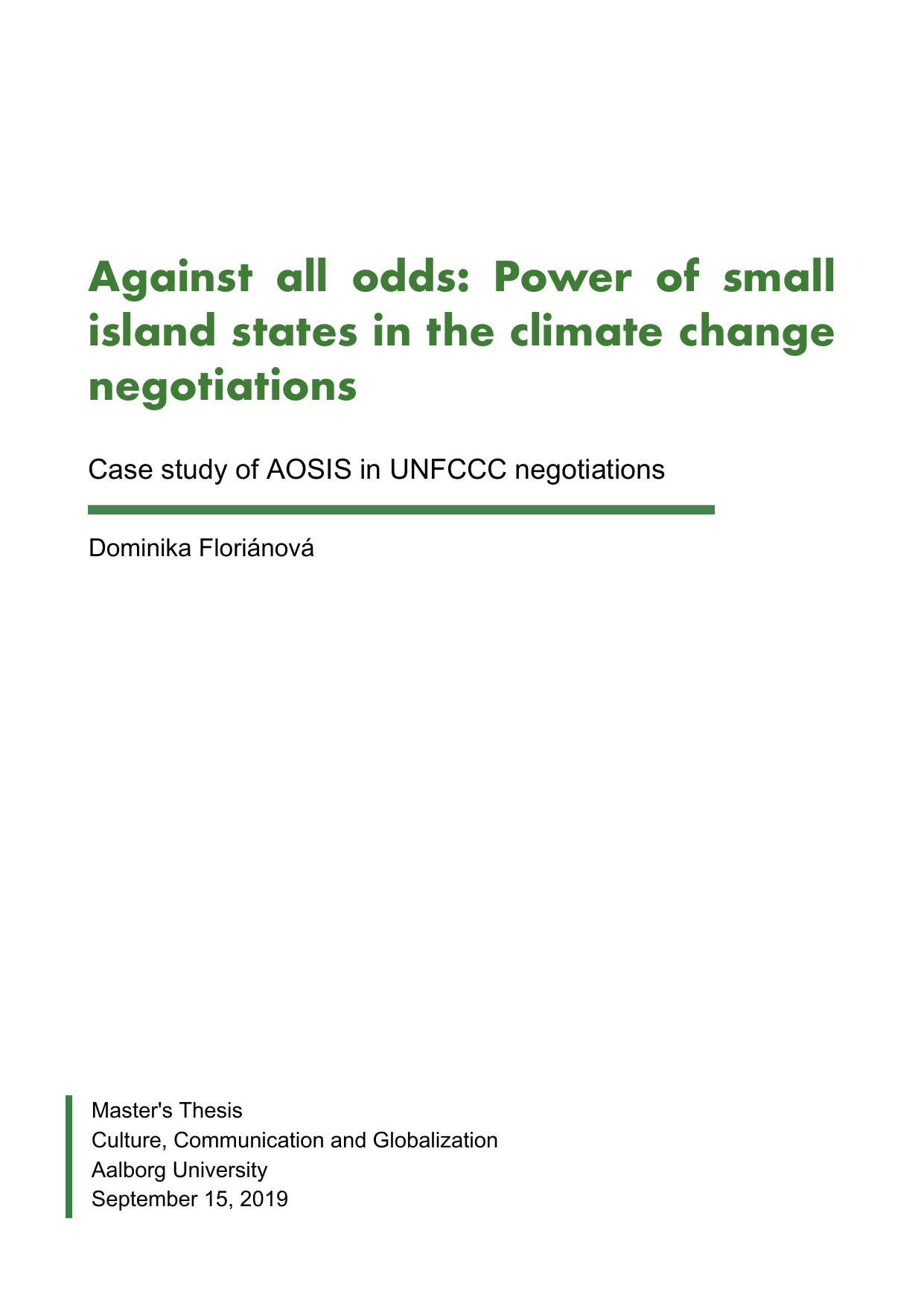
Against all odds: Power of small island states in the climate change negotiations: Case study of AOSIS in UNFCCC negotiations
Translated title
Author
Term
4. term
Publication year
2019
Submitted on
2019-09-15
Abstract
This thesis is exploring the structuralist paradox of state’s power, i.e. a case when weaker parties can effectively negotiate with stronger parties. The success of Alliance of Small Island States (AOSIS) in the United Nations climate change negotiations (UNFCCC) on the issue of loss and damage (L&D) was chosen as an extreme/unique case. The problem formulation was addressed through answering two specific research questions focusing on the strategies of AOSIS in the climate negotiations on the L&D issue and the way how can the concept of state power be understood through this case. Qualitative data for this analysis were collected from both primary and secondary sources, including two interviews, the author of this thesis conducted with actors involved in the negotiations on behalf of AOSIS. The theoretical framework of this thesis builds upon social constructivist stances and the concept of power. Moreover, to understand AOSIS strategies in the UNFCCC negotiations the literature on small states and its strategies in the negotiations have been investigated and transformed into a coherent and relevant theoretical framework. Specifically, the framework of ‘borrowing’ of power as developed by Rubin and Hartman (2000) and Betzold (2010) is applied on the analysis of AOSIS negotiation strategies and divides the strategies into four distinct categories (process-based, context-based, target-based and third-party based). Additionally, an overarching distinction of hard vs soft strategies is used. The analysis showed that despite their heterogeneity, the countries of AOSIS succeeded in building a common diplomatic discourse and impactful strategy thanks to its tight coordination and cohesiveness, the justness of its cause and support of the outside expertise. Their main success lied in their recognition as competent actors by other Parties in the negotiations. Furthermore, strong interlinkages between individual categories of negotiation strategies were observed. AOSIS used all of them extensively and no direct preference for a particular strategy was identified as one strategy hardly works without the other. The power AOSIS was able to construct in the negotiations can be understood as ‘issue-specific’ power as it is dependent on the context and is specific to the issue of climate change. Therefore, the power of AOSIS has to be understood only in this specific context and cannot be generalized on other institutions or matters. Moreover, the case of AOSIS redefines the traditional understanding of external sources of power as its climate vulnerability becomes a moral asset in the negotiations. Overall, the case of AOSIS proves that leadership in international affairs is not a simple translation of power to outcomes. Considerations such as moral standing and the urgency of the matter prove to be significant aspects that allowed the Alliance to act ‘above politics’.
Keywords
Documents
